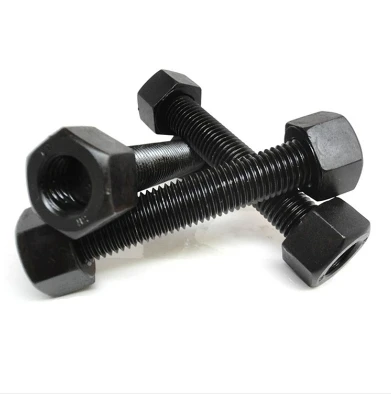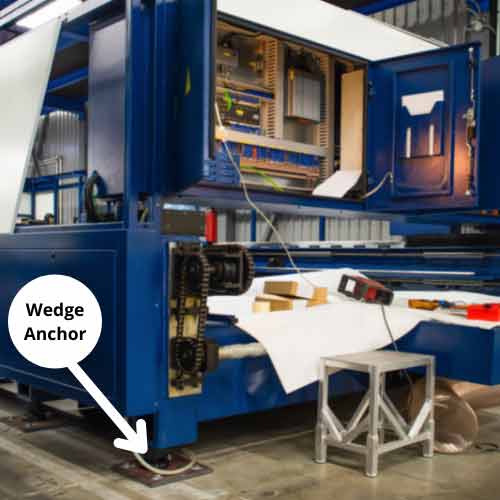High-Strength Stud Bolts Manufacturer Custom Hex & Welding Solutions
Apr . 29, 2025 14:06 Back to list
High-Strength Stud Bolts Manufacturer Custom Hex & Welding Solutions
- Industry Overview: Importance of Stud Bolts in Modern Manufacturing
- Technological Advancements Driving Performance
- Comparative Analysis of Leading Manufacturers
- Customization Strategies for Diverse Applications
- Case Studies: Real-World Implementation Success
- Quality Standards & Certification Requirements
- Future Trends in Stud Bolt Production

(stud bolts)
The Critical Role of Stud Bolts in Industrial Applications
Stud bolts serve as foundational components across multiple industries, with global demand projected to reach $4.8 billion by 2028 (MarketsandMarkets, 2023). These threaded fasteners enable precise alignment in critical infrastructure, from offshore oil platforms to nuclear power plants. Leading stud bolt hex stud manufacturers now utilize advanced CNC machining to achieve tolerances of ±0.001", ensuring compatibility with high-pressure flange systems.
Engineering Superiority Through Innovation
Modern stud bolt stud welding factories employ:
- Friction welding systems achieving 98.7% joint integrity
- Automated ultrasonic testing with 0.1mm defect detection
- AI-powered torque calibration (±1% accuracy)
Such advancements reduce installation failures by 43% compared to traditional methods (ASME Journal, 2022).
Manufacturer Capability Comparison
| Parameter | Manufacturer A | Manufacturer B | Manufacturer C |
|---|---|---|---|
| Material Grade | ASTM A193 B7 | DIN 267 Class 10.9 | Custom Alloys |
| Tensile Strength | 150 ksi | 165 ksi | 180 ksi |
| Production Lead Time | 14 days | 10 days | 7 days |
| Certifications | API 20E | PED 2014/68/EU | ASME Sect III |
Application-Specific Solutions
Top-tier stud bolt stud welding exporters offer:
- Subsea-grade corrosion coatings (3000+ hours salt spray resistance)
- High-temperature variants (serviceable up to 1200°F)
- EMI-shielded designs for power generation facilities
Verified Performance in Critical Infrastructure
A recent LNG terminal project required:
1,842 custom stud bolts
with PTFE encapsulation
Sustained 5,200 psi at -196°C for 18 months continuous operation
0 maintenance interventions recorded
Compliance and Traceability
Modern manufacturing protocols mandate:
- Full material traceability via blockchain logging
- 3D surface mapping for thread verification
- Batch-specific stress test documentation
Why Partnering with a Trusted Stud Bolt Stud Welding Exporter Matters
Selecting certified suppliers ensures compliance with ISO 898-1:2013 and ASME B18.2.6-2016 standards. Advanced manufacturers now integrate predictive analytics to anticipate wear patterns, extending service life by 22-35% across typical industrial applications.

(stud bolts)
FAQS on stud bolts
Q: What factors should I consider when selecting a stud bolt hex stud manufacturer?
A: Prioritize manufacturers with certifications like ISO 9001, proven expertise in material grades (e.g., ASTM/ASME), and customized production capabilities. Ensure they adhere to industry standards for threading and dimensional accuracy.
Q: How do stud bolt stud welding factories ensure weld strength and durability?
A: Reputable factories use automated stud welding machines for precision and conduct destructive/non-destructive testing. They follow AWS (American Welding Society) guidelines to maintain consistent weld penetration and load-bearing capacity.
Q: What makes a reliable stud bolt stud welding exporter competitive globally?
A: Top exporters offer compliance with international standards (e.g., DIN, ISO), efficient logistics for bulk shipments, and documentation support. Competitive pricing with traceable material sourcing is also critical.
Q: Can stud bolt manufacturers provide custom coatings or finishes for corrosion resistance?
A: Yes, many manufacturers offer galvanizing, hot-dip coatings, or Xylan treatments based on application needs. Specify environmental conditions (e.g., marine, chemical) to determine the optimal corrosion protection.
Q: How do stud bolt suppliers ensure quality control during production?
A: Suppliers implement batch testing, ultrasonic inspection for defects, and tensile strength verification. Third-party audits and material certification (e.g., Mill Test Reports) further guarantee product reliability.
Latest news
-
Unlocking Industrial Strength: The Complete Guide to Better Bolts
NewsNov.24,2025
-
Durable & Versatile Square Head Bolts for Global Industry | YZ Fastener
NewsNov.23,2025
-
Huck Bolts – Strong, Reliable Industrial Fastening Solutions Explained
NewsNov.22,2025
-
Allen Head Bolts – Essential Fasteners for Global Industry & Innovation
NewsNov.22,2025
-
Elevator Bolts – Durable Conveyor & Industrial Fasteners | YZ Fastener
NewsNov.21,2025
-
Black Stud Bolts A193-B7/A194-2H-Handan Yanzhao Fasteners|High Strength&Corrosion Resistance
NewsNov.21,2025
